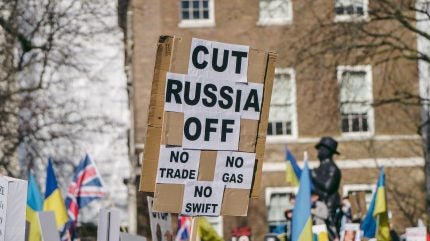
As Russia’s conflict with Ukraine rages on, the UK has now imposed sanctions on more of Vladimir Putin’s so-called ‘shadow fleet‘.
The UK claims the fleet, which is made up of older and often uninsured ships, uses illicit practices to avoid western restrictions on Russian oil.
The UK Government has now sanctioned a further 18 oil tankers, as well as an additional four liquified natural gas (LNG) vessels, in a new batch of measures.
The total number of vessels now under UK sanctions is 43.
The tankers are barred from entering UK ports and won’t be able to access maritime help.
According to several media reports on Thursday, the UK is trying to work with several maritime authorities to demand that Russian vessels reveal their insurance status as they pass through the English Channel.
How well do you really know your competitors?
Access the most comprehensive Company Profiles on the market, powered by GlobalData. Save hours of research. Gain competitive edge.

Thank you!
Your download email will arrive shortly
Not ready to buy yet? Download a free sample
We are confident about the unique quality of our Company Profiles. However, we want you to make the most beneficial decision for your business, so we offer a free sample that you can download by submitting the below form
By GlobalDataIn early September, the UK imposed sanctions on ten vessels it claimed were operating as part of the Russian President’s shadow fleet.
UK Foreign Secretary David Lammy said at the time that “Putin’s war machine is funded by a dark and illicit economic system that this government is committed to destabilising.”
Russia’s extensive fleet consists of frequently unseaworthy and ageing tankers that ship Russian gas and oil products worldwide. The country heavily relies on oil exports, which made up approximately 25% of the Russian budget in 2023, as the primary funding source for the war in Ukraine.
Later in September, David O’Sullivan, the EU’s Special Representative for Sanctions, said the continuing operation of a shadow fleet is a major contributing factor aiding Russia’s continuing transportation and sale of hydrocarbons.
According to several media reports at the time, the senior official indicated that the EU is contemplating expanding its sanctions regime against Russia to encompass the foreign subsidiaries of European companies.
“A lot of the product going through China [to Russia] is coming from subsidiaries of Western companies in South East Asia,” said O’Sullivan.
The fleet also poses a significant risk of causing a major oil spill in the Baltic Sea, claims a just-released Greenpeace report.
Greenpeace experts conducted a study analysing four years of vessel movement data, focusing on tankers leaving Russian Baltic Sea ports such as Primorsk, St. Petersburg, Ust-Luga and Vysotsk, and travelling along the German coastline.
This is a primary route for ships transporting oil from Russian ports to international waters.
Following the EU’s decision to stop importing almost all Russian oil, Russia has increased its maritime transportation of crude oil. A set of sanctions prevents Western shipping companies and insurers from dealing with Russian oil exports priced above $60 per barrel.



